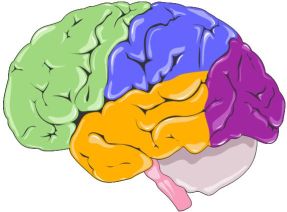Share
 There is a lot happening on the research front in fibromyalgia. The original criteria for the diagnosis of fibrmyoalgia was formed in 1990.
There is a lot happening on the research front in fibromyalgia. The original criteria for the diagnosis of fibrmyoalgia was formed in 1990.
Fatigue poor sleep and many other symptoms were not included in the original classification. Recently a new set of diagnositic criteria have been proposed and will most likely be accepted.
The important new changes recognise that individuals have alterations in the balance of various brain hormones (neurotransmitters) which cause a variety of dysfunctions in the way the central nervous system processes pain. This causes individuals to experience spontaneous widespread pain and also to have higher levels of pain for any given painful stimulus.
The new diagnosis also recognises that neurotransmitter imbalance may cause
- sensory hypersensitivity eg to smells and sounds
- symptoms such as an irritable bladder or irritable bowel
- alterered temperature regulation.
These symptoms are sometimes called “somatic hypersensitvity”.
Recent reseach has confirmed that chronic pain can lead to the developement of psychological factors such as depression and anxiety. However these psychological symptoms do not cause FM.
The research also confirms that brain homone (neurotransmitters) imbalance is frequently associated with psychological disorders.
Individuals with FM need to be vigilant in applying strategies to limit the developmenty of psychological factors.
Each individual has their own triggers for pain amplification.
In general any physical or emotional stress can trigger the symptoms of FM.
At the conference I attended I observed that a consensus as to how best to treat FM was beginning to emerge. Here are the top 7 strategies that emerged from the conference.
1. To provide individuals with a high level of education.
LI Comment: It is our hope and intention that this FM update eletter is contributing to your education. If you have not already done so I invite you to look at our DVD. Living Well with Fibromaylagia. Finding your Balance.
A high level of understanding of how the experience of pain develops is associated with less pain.
2. To be vigilant in addressing the psychological consequences of having FM.
LI Comment: Stress and depression can significantly trigger pain. Seek professional support if necessary.
Our More Than Meditation 6 week course is very helpful in this regard.
Some of you may have seen this article on the brain effects and meditation by Bill Patterson. It is a wonderful summary…..>
3. Incorporate appropriate lifestyle choices into your life …..ongoingly…. .
LI Comment: The evidence is overwhelming that a balanced lifestyle contributes to wellbeing. Pathways To Welbeing is a road map for you to follow. Remind yourself of the details here.
Knowing the Pathways is a start but the benefits only come with implementing the practices into daily life. This is the fundamental building block for living well with FM.
4. Improve the quality and duration of sleep.
LI Comment: Poor sleep is associated with an increased intensity of the pain experience.
5. Exercise at least 3 times per week. Exercise beneficially increases the brain hormone serotonin.
LI Comment: Any exercise that does not induce pain will be beneficial. I particulary recommend yoga on a regular basis.
Click here for a list of yoga teachers who through their training have an interest in teaching classes for people with fibromyalgia.
6. Eliminate toxic foods from your diet
LI Comment: The main food culprits are –
Sugar
Fructose
Coffee
Transfatty acids
Alcohol. A few glasses per week is beneficial. Any more than that is toxic.
Nicotine
7. Understand how best to use the medications for FM
LI Comment: In Austalia some, but not all, of the medications and supplements recommended for FM are available. The best use of medications is complex and requires close supervision for the best results. Seek advice.
